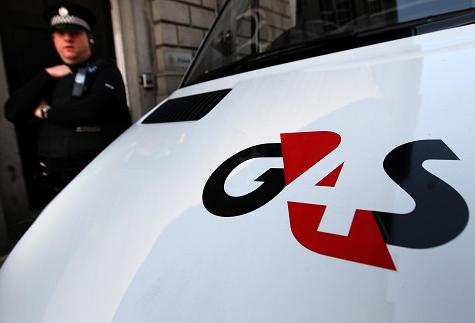G4S supplied “intelligence analyst” to Greater Manchester Police
Article published: Wednesday, July 25th 2012
Olympics security firm G4S supplied an “intelligence analyst” familiar with legislation governing surveillance powers to Greater Manchester Police (GMP), according to a vacancy advertised on the website of the multinational company’s subsidiary “Policing Solutions” last January.
 Based within GMP on a temporary four month contract, the vacancy required an understanding of the Regulation of Investigatory Powers Act (RIPA), often dubbed a “snooper’s charter” by critics, and experience in handling data derived from call records, text messages, email and digital “packet data”.
Based within GMP on a temporary four month contract, the vacancy required an understanding of the Regulation of Investigatory Powers Act (RIPA), often dubbed a “snooper’s charter” by critics, and experience in handling data derived from call records, text messages, email and digital “packet data”.
Payment for the job was advertised as between £11.19 and £14.91 an hour, and the contract was “likely to be extended further”.
Key responsibilities included sifting through such information to identify “intelligence gaps” in order to assist senior investigations officers in conducting analysis on high-prevalence “volume crime”. As opposed to interceptions of the actual content of messages, the recruitment post said the analyst would be working with “communications data” – information about a message itself such as the time it was sent and who it was sent between.
When asked by Mule, GMP would not comment on which crimes the analyst would investigate, and which safeguards were present to ensure potentially personal data is handled safely and in the public interest by staff contracted through G4S.
GMP also declined to answer questions over whether any other outsourced staff are employed within their ranks, which range of roles they fulfil if so, and if they have any plans to expand their use.
Limited restrictions cover access to communications data, with a senior designated officer within a police force able to authorise access without judicial warrant, and roughly half a million requests for communications data are made each year.
Such lax regulations are controversial, with the human rights organisation Justice pointing out that intrusive amounts of knowledge can be gleaned from such information including billing and subscriptions data, a person’s location and movements, who they associate with, and the urls of websites they visit.
One of the world’s largest private employers and possessing a £7.5 billion turnover, G4S was hit by scandal last week after making what CEO Nick Buckles acknowledged to be a “humiliating shambles” of its contract to provide security for the Olympics. Plans to contract out £1.5bn in services by West Midlands and Surrey Police, with G4S tipped to be a key beneficiary, were only quietly postponed last week after the true extent of the farcical scenes in London became clear.
The company remains a major government contractor however, and since 2002 has regularly supplied over 20,000 “candidates” to police forces through its Policing Solutions subsidiary. Despite government and police claims that such workers are intended to carry out back office functions in order to free up front line forces, some roles advertised through the website include duties such as “reviewing historic murder investigations”.
More is likely to be on the way. In a presentation uploaded in 2011 onto the website of the Centre for Local Economic Studies, a Manchester-based think tank, the company’s regional director claimed to already provide operational support to GMP, alongside the force’s dog unit.
On their website G4S are inviting expressions of interest ahead of plans to set up a new regional HQ in Manchester. Police forces in Cambridgeshire, Bedfordshire and Hertfordshire also plan press ahead with plans to privatise their services to save £75m, caught between what G4S chief David Taylor-Smith identified last month as “budgetary pressure and political will”.
Richard Goulding
More: Manchester, News, Policing
Comments
-
I wonder what Tony Lloyd MP has to say about this? He’s currently the MP for Manchester Central but is standing down in order to stand later this year for election as police commissioner. I wonder what the other candidates think of this too, and the increasing privatisation of the police generally? Any chance you can ask him/them for comment, Mule? It would be good to know where they stand on this issue. Thanks.
Comment by Lulu on July 25, 2012 at 6:33 pm -
This article demonstrates the benefit of outsourcing public work to private companies.
If a private company fails us, we can get rid of it and put the contract out again.
When a patient dies of dehydration in a London NHS hospital, a dangerous murderer escapes from Pentonville prison by simply climbing over the wall or the emergency services fail to find a dead couple in collapsed short tunnel for 10 whole days we are stuck with the same incompetent staff on the public payroll with only a minimal chance of dismissal.
For all G4S’s olympic bungling, the above 3 cases are many times more serious, involving a death, danger to the public from a violent man and carelessness.
The hysteria about private provision of public services is mainly drummed up by those publicly employed staff who wish to maintain their own monopoly of the work along with the generous pay, staggeringly good pensions, longer than average holidays, lenience on ‘sick’ pay and other cushy terms and conditions.
Monopolies are bad for consumers, and that applies just as much to public monopolies as private ones.
Comment by simon on July 26, 2012 at 10:02 pm
The comments are closed.



